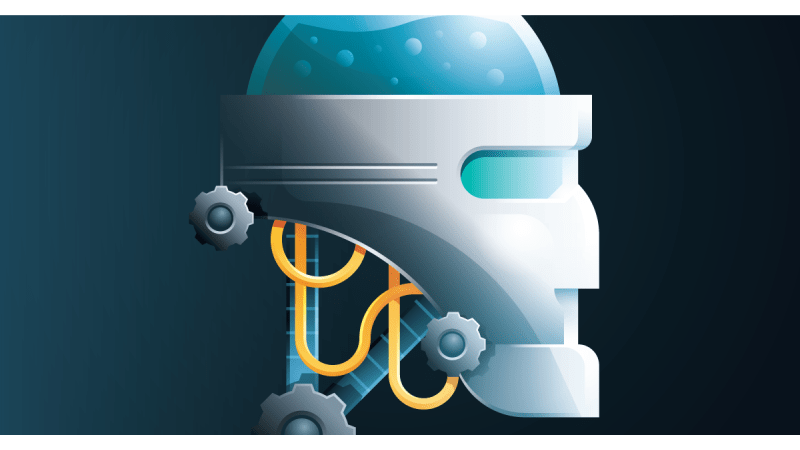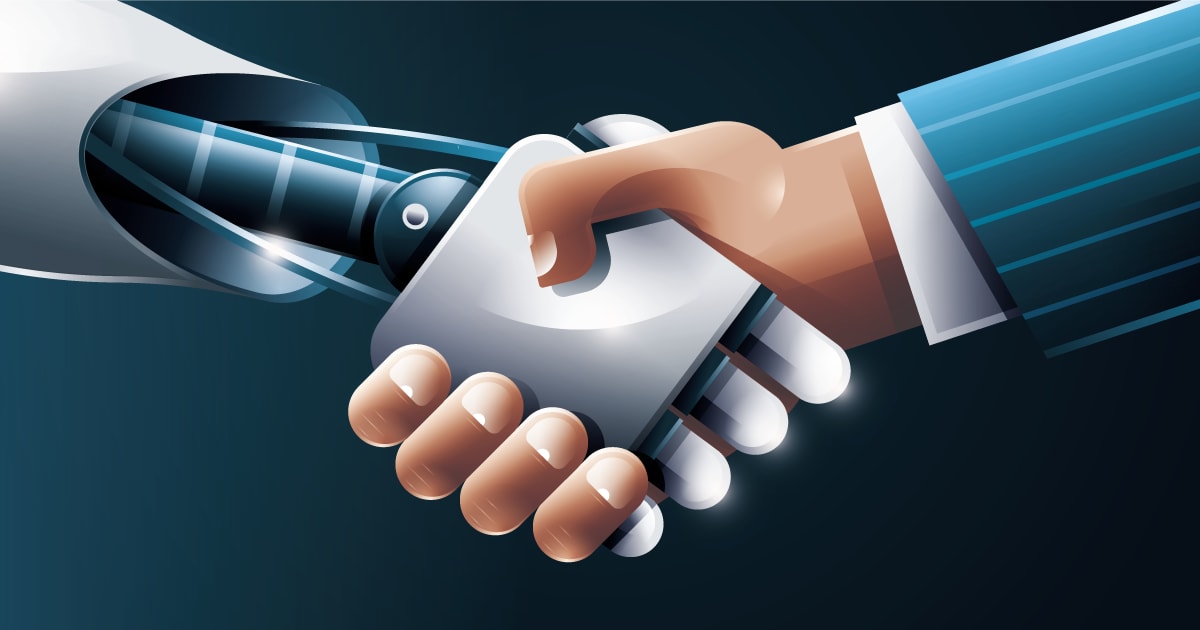What AI Needs To Learn From Humans

Interest in AI has spiked dramatically this year, with the global market increasing 20x by 2030 — but does AI have what it takes to grow without human intervention?

AI Is Growing (And Learning) Rapidly
- AI tools have become a gigantic part of the global technology mix
- AI research has increased 2x since 2010
- Newly funded AI startups increased 2.8x between 2013 and 2022
- Private investments in AI are 18x greater in 2022 than in 2013
- And global adoption is on the rise
- US: 43% of businesses are exploring AI; 25% are using AI
- UK: 47% of businesses are exploring AI; 26% are using AI
- Australia: 44% of businesses are exploring AI; 24% are using AI
- Canada: 48% of businesses are exploring AI; 28% are using AI
- China: 30% of businesses are exploring AI; 58% are using AI
- 60% of us expect our lives to change significantly in the next 3 - 5 years
- Includes areas like:
- Education
- Transportation
- Shopping
- Entertainment
- Safety
- Much of this is due to ChatGPT, which has become a game changer in the recent excitement about AI
- ChatGPT hit 100 million monthly active users in January 2023, becoming the fastest-growing application in history
AI isn’t perfect and isn’t self-sustaining. AI incidents and controversies have increased 26x since 2012

The Myth Of ‘Human Free’ AI
- AI cannot make perfect decisions without human intervention, and may even make serious (and costly) mistakes
- Rekognition erroneously identified multiple members of Congress as criminals, and was unable to distinguish certain faces from one another
- Amazon’s AI recruiting tool displayed bias while reviewing resumes, which ultimately affected the company’s diverse hiring goals
- An AI soccer camera deployed by a Scottish soccer team mistakenly tracked a player’s bald head instead of the ball during a game
- Some CAPTCHA images are now AI generated — although discerning what they show may be somewhat challenging
- AI companies have given up on fully automated self-driving cars
- There’s no way to train AI to account for all possible contingencies
- These are simple problems solvable by human intelligence, but not by AI alone
- Today’s AI lacks the ability to:
- Narrow its focus during research
- Set its own prompts for what to explore
- Exert judgment about data on its own direction
- Select and determine what data matters most
- Exact its own will and manifest it in design
- Explain why it came to a certain conclusion
- Have a desire or will to accomplish tasks
- AI cannot tap into human soft skills like:
- Creativity
- Empathy
- Teamwork
- It’s true that some AI applications, including ChatGPT, can pass the Turing Test
- Turing Test: Can an AI become intelligent enough to pass as a real human?
- However, no platform has ever passed the Lovelace Test
- Lovelace Test: Can an AI produce something unexpected or unexplained by its human creators?
- Because of this, major world leaders and technology experts are signing a petition to halt the development of AI
- Includes:
- Elon Musk
- Steve Wozniak
- Emad Mostaque
- ″Advanced AI could represent a profound change in the history of life on Earth, and should be planned for and managed with commensurate care and resources.”
- Asilomar AI Principles
[Call Out: AI needs human intervention to reach new heights — one of the reasons why searches for AI services are up 1,400% on Fiverr alone]
AI Needs More Than Just Human Supervision
A Dedicated Co-Pilot
- Sam Altman, CEO of OpenAI
- “For humanity, we have this idea of a co-pilot; this tool that we can have for every profession. It’s going to be the collective power, and creativity, and will of humanity that figures out what to do with [AI].”
- A Human Perspective
- Fei-Fei Li, Sequoia Capital Professor of Computer Science at Stanford University
- “I often tell my students not to be misled by the name ‘artificial intelligence’ - there is nothing artificial about it. AI is made by humans, intended to behave by humans, and, ultimately, to impact humans’ lives and human society.”
- Practical Applications
- Marvin Minsky, Father of AI
- “Computer programs are good, they say, for particular purposes, but they aren’t flexible. Neither is a violin, or a typewriter, until you learn how to use it.”
With the right human guidance, AI may be able to expand its roster of jobs and achieve the coveted position of ‘artificial artificial intelligence’
Unlocking AI’s Potential With The Human Element
- “Artificial” artificial intelligence: Using the power of AI with real human intelligence to accomplish big tasks in a short amount of time
- Adds the human element back into AI to accent and boost its ability
- May lead to the advancement of AI in many ways:
- The ability to multitask on multiple projects
- The power of discernment and common sense
- The confidence to make moral decisions
- The opportunity to add empathy to decision-making
- The chance to be creative in its own right
- These abilities require one basic element: a human’s knowledge and experience with AI curation
Understanding your role in AI curation can help everyone make better use of artificial intelligence
Creativity & Adaptability: The #1 Thing AI Needs From Humans
- Since AI is inherently motiveless and requires a human element, it’s up to us to direct it through curation
- The goal is to ask questions and design actions stemming from basic questions:
- What should we focus on?
- How should we curate it?
- Which criteria do we include?
- Example: digitizing books through Recaptcha
- In 2009, Google wanted to digitize its back-catalog of books with the help of human intelligence
- Their OCR technology struggled to understand certain words that were styled differently from the rest of the text (like curving or rounded words)
- By matching users who needed to prove they were human to words that needed verification, they were able to help their AI system identify words and phrases
- Users were asked to ‘transcribe’ two words (such as ‘morning’ or ‘overlooks’)
- By 2011, Recaptcha had digitized the entire Google Books archive (including 13 million articles from the NYT)
- None of this would have been possible without artificial artificial intelligence — or the marriage between humans and computers
- We need humans to make judgements about what we see on screen so we can take decisive action about how said information should be used
Unlocking the potential of AI starts with human interaction — and those who can create human-centric commands hold our keys to the future
Sources
https://www.statista.com/statistics/1365145/artificial-intelligence-market-size/
https://techjury.net/blog/ai-statistics/#gref
https://bigthink.com/the-future/what-ai-cannot-do/
https://www.aclu.org/news/privacy-technology/amazons-face-recognition-falsely-matched-28
https://aiindex.stanford.edu/report/
https://aiindex.stanford.edu/wp-content/uploads/2023/04/HAI_AI-Index-Report_2023.pdf
https://www.weforum.org/agenda/2022/01/artificial-intelligence-ai-technology-trust-survey/
https://www.ibm.com/downloads/cas/GVAGA3JP
https://academicinfluence.com/people/sam-altman
https://academicinfluence.com/people/marvin-minsky